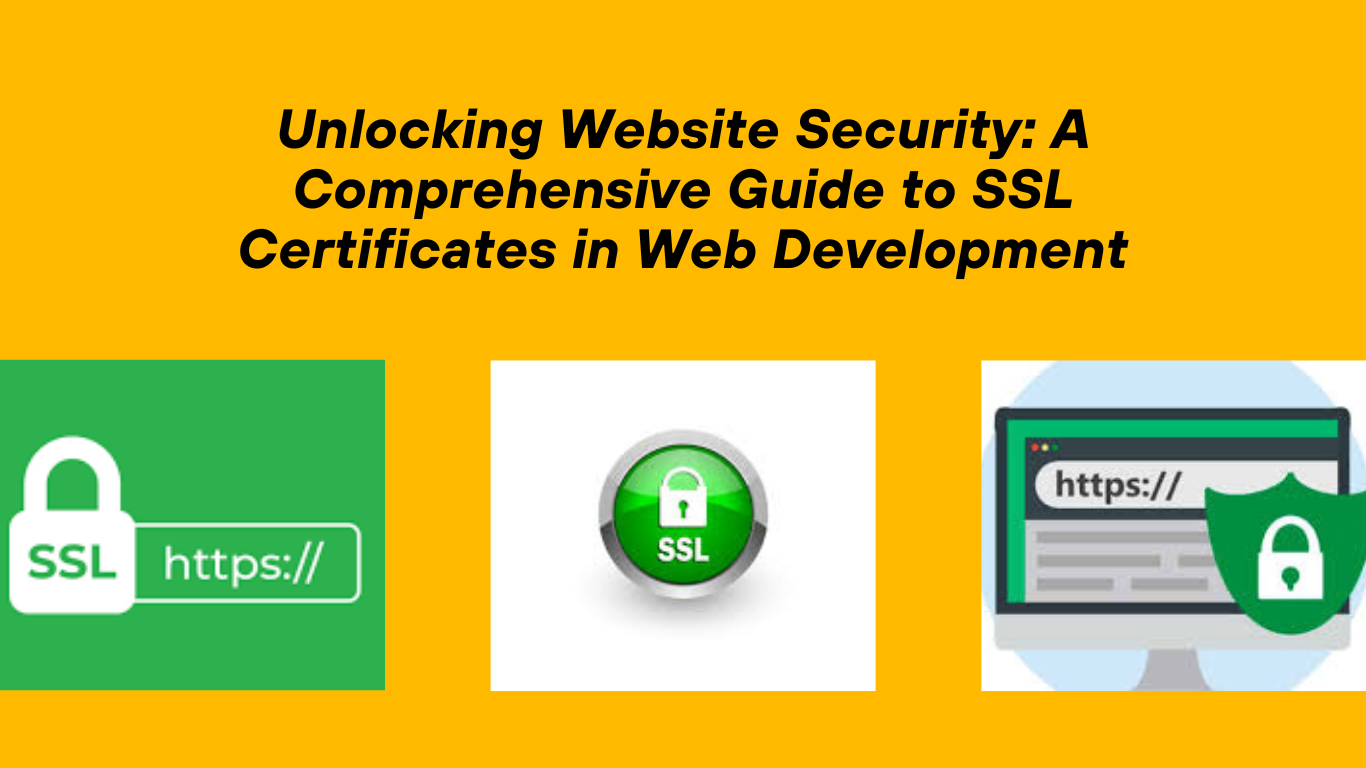
Unlocking Website Security: A Comprehensive Guide to SSL Certificates in Web Development
In the fast-evolving landscape of web development, ensuring the security of your website is paramount. One key player in the realm of cybersecurity is the SSL certificate. In this blog post, we’ll delve into the importance of SSL certificates and shed light on the various types available to fortify your website against potential threats.
Understanding SSL Certificates
SSL, or Secure Sockets Layer, is a cryptographic protocol that establishes a secure connection between a user’s web browser and the server hosting a website. This encryption ensures that data transmitted between the user and the website remains confidential and integral. SSL certificates are the digital passports that enable this secure connection.
Importance of SSL Certificates
Data Encryption:
- SSL certificates encrypt sensitive data, such as login credentials and personal information, preventing unauthorized access by hackers.
Trust and Credibility:
- Websites with SSL certificates display a padlock icon in the address bar, signaling a secure connection. This visual cue instills trust in visitors and enhances your website’s credibility.
Search Engine Optimization (SEO) Benefits:
- Search engines like Google prioritize secure websites in their rankings. Having an SSL certificate can positively impact your website’s SEO, contributing to higher search engine visibility.
Types of SSL Certificates
SSL certificates come in various types, each serving specific needs. Understanding these types can help you choose the right certificate for your website.
Domain Validated (DV) Certificates:
- These certificates validate ownership of the domain, providing basic encryption. They are suitable for personal websites and blogs.
Organization Validated (OV) Certificates:
- OV certificates offer a higher level of validation by verifying the legitimacy of the organization that owns the domain. They are ideal for small businesses and e-commerce sites.
Extended Validation (EV) Certificates:
- EV certificates provide the highest level of validation, requiring a thorough examination of the organization’s identity. Websites with EV certificates display the company name in the address bar, adding an extra layer of trust.
Wildcard Certificates:
- A wildcard certificate secures a domain and all its subdomains with a single certificate. This is useful for websites with multiple subdomains.
Multi-Domain (SAN) Certificates:
- SAN certificates allow you to secure multiple domains with a single certificate, offering flexibility for businesses managing several websites.
Choosing the Right SSL Certificate for Your Website
When selecting an SSL certificate for your website, consider factors such as the nature of your site, the level of validation required, and the number of domains/subdomains you need to secure. Investing in the right SSL certificate not only safeguards your website but also contributes to a positive user experience.
In conclusion, SSL certificates play a pivotal role in web development by ensuring secure and encrypted connections. The right SSL certificate not only protects sensitive data but also enhances your website’s trustworthiness and search engine rankings. Stay ahead in the digital landscape by prioritizing website security through SSL certificates tailored to your specific needs in web development.
